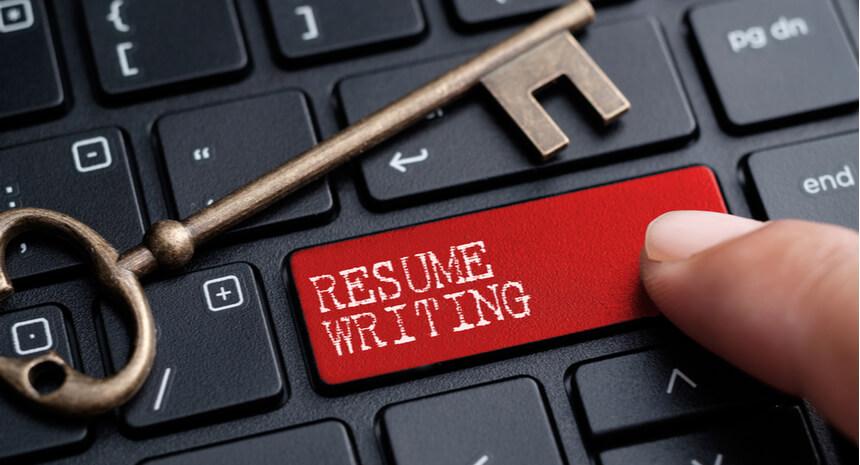Popular Journalist Resume Examples
Entry-level journalist resume
An entry-level resume for a journalist should focus on relevant coursework, writing samples, internships, and skills like research, storytelling, and digital media skill to highlight potential.
Focuses on goals: The applicant demonstrates a strong foundation in journalism through diverse experiences, focusing on audience engagement and content strategy to improve their skills and drive professional growth in the media industry.
Emphasizes soft skills: This resume highlights the job seeker's strong soft skills, such as audience engagement and effective communication, which offset their limited experience.
Mid-career journalist resume
A mid-career journalist's resume should emphasize a mix of strong reporting experience, versatile writing skills, and continuous professional development to capture the attention of potential employers.
Begins with a powerful summary: This resume starts with a strong professional summary that highlights essential qualifications and achievements, enabling recruiters and ATS to swiftly recognize the job seeker's experience in journalism.
Employs active language: Using action verbs such as "conducted," "increased," and "authored" highlights initiative and measurable contributions, showcasing the journalist's impact on readership and content quality.
Experienced journalist resume
An experienced journalist resume should emphasize significant stories covered, skills developed, and the evolution of their reporting style to illustrate professional growth and achievements.
Follows traditional format: The chronological resume format is an effective way to showcase the extensive experience of a job seeker. It provides a clear timeline that highlights career advancements and key accomplishments in journalism, making their professional journey easy to follow.
Highlights experience: The resume's opening summary effectively showcases the job seeker's award-winning background and 13 years of extensive experience in journalism. This immediately establishes a strong professional tone, highlighting skills that resonate with industry standards and capturing the recruiter's attention.
No experience journalist resume
A resume for an applicant with no experience should highlight relevant coursework, internships, and any writing samples to showcase the applicant's communication skills and passion for storytelling.
Favors clarity over complexity: The resume's straightforward format effectively highlights qualifications, showcasing relevant experience and skills without overwhelming distractions.
Draws from diverse experiences: Integrating extracurricular activities and volunteer roles into a resume improves it by highlighting transferable skills and dedication. This approach can be especially valuable for applicants with limited professional experience in journalism.
More resume examples
Journalist Resume Template
Looking to craft the perfect resume? This journalist template serves as an excellent foundation—just personalize it with your details to make a strong impression.
Tao Lee
Parkview, MO 64156
(555)555-5555
Tao.Lee@example.com
Skills
- Investigative Reporting
- SEO Optimization
- Editing and Proofreading
- Digital Content Creation
- Interviewing
- Social Media Strategy
- Project Management
- Public Speaking
Certifications
- Certified Journalism Specialist - National Press Institute
- Digital Media Certification - Online News Association
Education
Master's Journalism
Columbia University New York, NY
May 2015
Bachelor's Communications
University of California, Los Angeles Los Angeles, CA
May 2013
Languages
- Spanish - Beginner (A1)
- French - Beginner (A1)
- German - Beginner (A1)
Professional Summary
Experienced journalist with expertise in city journalism. Enhanced readership by 25%, covered complex urban issues. Skilled in SEO, multimedia content, and engaging storytelling.
Work History
Journalist
Urban News Network - Parkview, MO
September 2021 - September 2025
- Covered 100+ stories on urban issues monthly
- Increased readership by 25% through compelling articles
- Collaborated with teams to produce award-winning pieces
Content Writer
Insightful Weekly - Parkview, MO
September 2018 - August 2021
- Authored articles that boosted engagement by 30%
- Managed editorial calendar for timely publications
- Optimized content for SEO, increasing visibility
Media Correspondent
Global Daily Report - St. Louis, MO
September 2015 - August 2018
- Reported live from 50+ global events yearly
- Spearheaded social media drive, 40% follower boost
- Crafted in-depth analysis pieces on world affairs
Must-Have Skills on a Journalist Resume
A compelling skills section is important for standing out in a competitive job market.
The following data highlights the most sought-after hard and soft skills for journalists based on our internal research at Resume Now.
When you're ready to improve your resume with relevant skills, try our AI Resume Skills Generator. It provides tailored skill suggestions that align with your job title, ensuring you present a comprehensive and personalized skill set.
Writing Your Journalist Resume
Having explored these effective resume examples, you are now prepared to dive into the process of crafting your own. We'll walk you through how to write a resume step by step, ensuring every section is covered in detail.
List your most relevant skills
An effective skills section on your journalist resume should highlight both your technical abilities, such as research and writing skill, and soft skills like storytelling and critical thinking.
Make sure to closely examine the job description and include keywords from the job listing in your skills section. By doing this, you not only appeal to human recruiters who appreciate relevant expertise but also improve your chances of passing through applicant tracking systems.
Example of skills on a journalist resume
- Proficient in conducting in-depth research across various news sources
- Adept at crafting compelling narratives and articles under tight deadlines
- Strong communicator with the ability to engage diverse audiences
- Analytical thinker with excellent fact-checking and editing skills
A well-crafted skills section is important for showcasing your readiness for the journalist role. Include specific technical skills mentioned in the job description, alongside essential soft skills like communication and critical thinking. This balanced approach demonstrates that you are fully equipped to meet the challenges of the position.
Highlight your work history
Your work experience section should highlight not just your tasks but also your achievements, showcasing how you used your skills to impact stories and engage audiences. Make sure each entry includes relevant keywords that align with the journalism field, allowing hiring managers to easily recognize your expertise.
Each job entry must contain key details such as your title, the employer's name, and the dates of employment. This information helps establish professional credibility and shows potential employers where you've worked and when. Emphasize any notable accomplishments or recognitions you received during these roles to stand out.
Example of a journalist work experience entry
- Journalist
The Daily News - New York, NY
June 2018 - Present - Conduct in-depth interviews with public figures and community members to gather insights for feature articles, improving the newspaper's reputation for quality journalism
- Research and write compelling news stories under tight deadlines, achieving a readership engagement increase of 30% over two years
- Collaborate with editors and photographers to create visually appealing content that complements written pieces, improving overall article performance
- Use social media platforms effectively to promote articles, resulting in a follower growth rate of 25% on institutional channels
- Mentor junior reporters by providing guidance on storytelling techniques and ethical reporting standards, fostering a culture of learning within the newsroom
Highlighting outcomes and achievements in your experience section is essential for capturing an employer's attention. By showcasing the impact of your work rather than merely listing responsibilities, you demonstrate your effectiveness and ability to create results. This approach not only shows your skills but also makes a compelling case for why you’re an ideal job seeker for the role.
Add portfolio work to your resume
For journalists, the challenge lies in effectively showcasing your writing skills while encouraging hiring managers to explore your full portfolio. Highlighting powerful articles can illustrate your voice and versatility, while also prompting employers to delve deeper into your work.
Start by including a link to your online portfolio at the top of your resume, adjacent to your contact information. Follow this with a section titled "Selected Works," featuring 3-4 of your most notable pieces along with brief descriptions that capture their significance and reach.
Example of a portfolio highlights section
- Investigative Feature on Urban Housing Crisis for City Times – Uncovered systemic issues, leading to a 15% increase in community engagement and policy discussions
- Health and Wellness Column for Daily News – Authored weekly articles that boosted readership by 25%, recognized with a local journalism award
- Environmental Reportage for Green Planet Magazine – Conducted interviews and research that resulted in a front-page feature, praised for its depth and clarity
- Cultural Review Series for Arts & Culture Journal – Highlighted emerging artists, contributing to a 30% increase in magazine subscriptions
Include your education
The education section of your journalist resume is essential for showcasing your academic background and should list your degrees in reverse-chronological order, starting with the most recent. Include bachelor’s degrees and any relevant certifications while omitting high school diplomas if you have a higher qualification. Highlight any honors or significant projects that may set you apart from other job seekers.
If you are currently pursuing a degree or have incomplete courses, make sure to note your highest level of education along with an expected graduation date. For current students or recent graduates, it can be helpful to add bullet points about relevant coursework or academic achievements that relate directly to journalism.
Common certifications for a journalist resume
- Certified Journalist (CJ) – Society of Professional Journalists (SPJ)
- Multimedia Journalist Certification (MMC) – National Association of Broadcasters (NAB)
- Digital Media Production Certificate (DMPC) – University of California, Berkeley Extension
- Investigative Journalism Certification (IJC) – Investigative Reporters and Editors (IRE)
Sum up your resume with an introduction
A strong profile section on your resume is essential for making a lasting first impression. It serves as your personal branding statement, giving potential employers insight into who you are as an applicant and what unique skills you bring to the table.
For those with experience in journalism, a professional summary is the way to go. This format allows you to showcase your most impressive accomplishments right at the top of your resume. If you have a short work history, use a goals-focused resume objective to show your development and direction.
Professional summary example
Dynamic journalist with over 5 years of experience in fast-paced news environments. Recognized for delivering compelling stories under tight deadlines and improving audience engagement through innovative multimedia content. Highly adept in investigative reporting, social media strategy, and fact-checking to ensure accuracy and credibility.
Resume objective example
Enthusiastic journalist eager to use strong writing, research, and communication skills to support a forward-thinking media organization. Committed to delivering compelling stories that engage audiences while contributing to innovative content strategies that improve brand visibility.
In your resume profile, always start with your job title. This approach ensures that employers instantly recognize your professional identity and understand what you bring to the table, whether you choose a summary or an objective statement.
Add unique sections to set you apart
Incorporating optional resume sections can greatly improve your candidacy as a journalist. These sections allow you to highlight unique qualifications that set you apart from other job seekers.
By including relevant hobbies or volunteer experiences, you not only showcase your passion for journalism but also demonstrate your commitment to values such as community engagement and advocacy. Sharing these aspects of your life reflects your diverse skill set and working style, giving employers insight into how you might contribute both in and out of the newsroom.
Three sections perfect for a journalist resume
- Work Samples: A portfolio section on your resume allows potential employers to see your journalistic expertise firsthand. By showcasing 3-5 articles or reports, you can illustrate your storytelling ability, research skills, and unique perspectives that define your work.
- Client Testimonials: Client testimonials can spotlight your storytelling flair and credibility. Choose quotes that emphasize your investigative skills, commitment, or compelling narratives.
- Awards and Recognition: Including awards to your resume highlights your achievements and distinguishes you from other applicants. Be sure to mention the nature of the award, the organization that granted it, and the date it was awarded.
5 Resume Formatting Tips
- Choose a format that matches your career stage.
Selecting the right resume format is essential for showcasing your skills effectively. If you are just starting out, a functional resume can highlight your transferable skills. For those with more experience, a chronological layout presents your career progression clearly. Choose a combination format if you want to emphasize both skills and work history.
- Pick a smart resume template.
Use a professional resume template to improve readability and streamline your formatting. A well-designed template allows hiring managers to quickly assess your qualifications. If you opt for a custom layout, ensure it remains clean and uses fonts that are compatible with applicant tracking systems.
- Select an appropriate font.
Choose a clear and professional font to improve your resume's readability. Fonts like Georgia, Verdana, or Helvetica are excellent choices as they maintain a clean appearance for both ATS and hiring managers.
- Use consistent formatting.
Keep your resume left-aligned and maintain uniform margins. This creates a polished and professional look that stands out to potential employers.
- Keep your resume to one or two pages.
When crafting your resume, remember that resumes should be one page long unless you have extensive experience. Keep your content concise and ensure it highlights the most relevant information to grab the reader's attention effectively.
Tools for Your Job Search
Are you gearing up to apply for your next journalism role? Before you hit that submit button, take advantage of our ATS Resume Checker. This essential tool offers insights into how well your resume meets the requirements of automated systems used by many media organizations for initial applicant screening.
Searching for a way to elevate your application? Our AI Resume Builder provides tailored recommendations specific to your journalism background, alongside professionally designed templates that showcase your writing skills and unique experiences effectively.
Frequently Asked Questions
Last Updated: October 3, 2025
Absolutely. A cover letter is important as it adds depth to your resume and creates valuable communication opportunities with employers. It allows you to express your passion for journalism and highlight how your unique experiences make you a perfect fit for the role. So, don't overlook this chance—write a cover letter that resonates with potential employers.
For a seamless experience, consider using our AI Cover Letter Generator. This tool helps you quickly create tailored cover letters in just minutes, offering various cover letter template options that align perfectly with your resume. Make your application stand out effortlessly!
A resume is a concise document that typically spans one to two pages, highlighting your work experience and skills relevant to a specific job. In contrast, a CV (curriculum vitae) can be several pages long and includes extensive details about your academic background, research contributions, publications, and professional accomplishments.
You should use a CV when applying for positions in academia, research, or specialized fields like law and medicine. If you need to create a CV quickly and efficiently, our online CV Maker is the perfect solution! It offers various CV templates tailored to different industries and career levels—making it easy for you to craft a standout document that meets your needs.
To write a strong CV, focus on presenting your information in a clear and organized manner. Start with sections such as education, work experience, skills, and achievements. Select professional templates that are visually appealing and friendly for applicant tracking systems. Tailor each application by incorporating relevant keywords from the job description to make your qualifications stand out.
For further guidance, take the time to explore CV examples from industry professionals. Reviewing how others effectively showcase their experiences and skills can provide valuable insights into what works best in your field. This can spark ideas for improving your own presentation style.
An active LinkedIn presence is important for a journalist's job search. Leverage your profile to connect with industry professionals and highlight your writing skills to attract potential employers.
To thrive as a journalist, continuously seek out new learning experiences. Consider pursuing relevant certifications, joining journalism associations, and staying informed through industry publications. Attend workshops or online courses to deepen your expertise and remain at the forefront of evolving trends in media and storytelling.
Was this information helpful? Let us know!
Leisha is a career industry editor dedicated to helping job seekers excel in their careers.
More resources

Best Resume Font for 2026 (+ Size and Formatting Tips)
Find the best resume font for your resume with our comprehensi...

How to Write a Resume: Guide & Examples for 2026
If you re wondering how to write a resume that grabs attenti...

Federal Resume: Examples, Templates and Tips
As a federal employee your resume must stand out to capture t...

Nursing Student Resume: Examples, Templates & Tips for 2025
As a nursing student you need a resume that showcases your cl...

Scholarship Resume: Examples, Template & How-to Guide
As a scholarship applicant you need a resume that highlights ...


